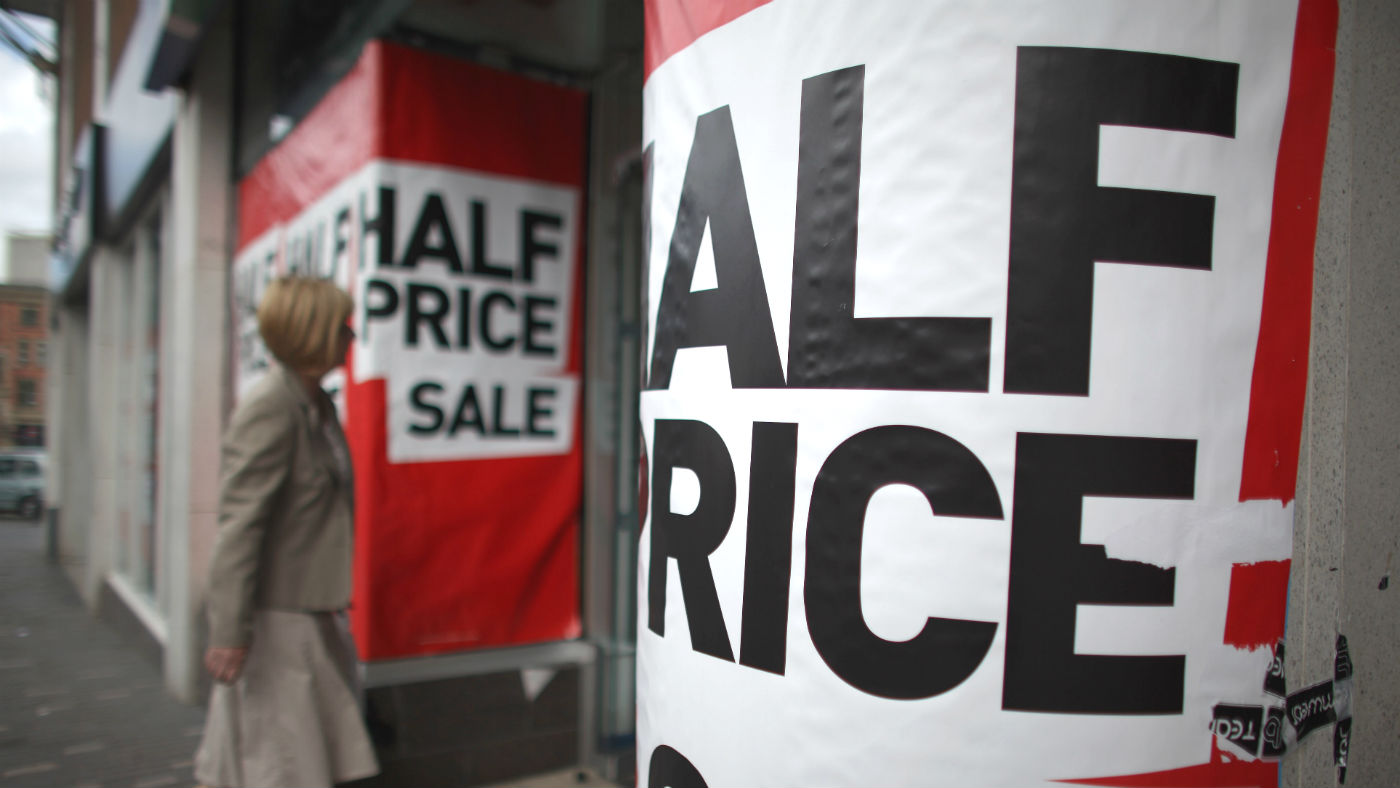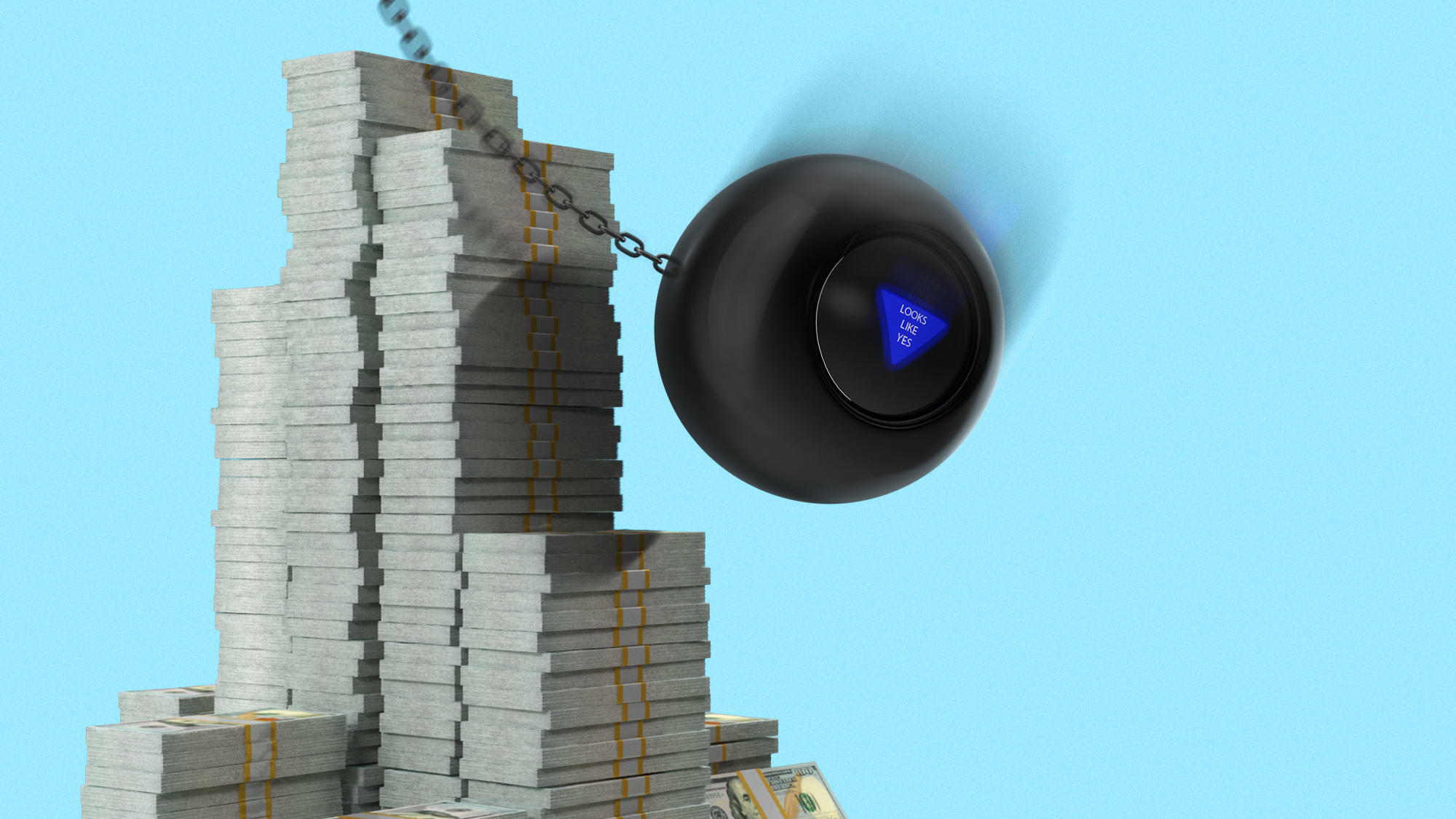British economy ‘collapsing’ as confidence falls
Hopes dashed that the economy will recover swiftly

A free daily email with the biggest news stories of the day – and the best features from TheWeek.com
You are now subscribed
Your newsletter sign-up was successful
Britain’s economy is collapsing at record pace amid a massive reduction in business activity and spiralling unemployment, and corporate confidence has suffered its largest quarterly drop on record.
Executives at Britain’s largest businesses “are braced for coronavirus to knock corporate revenues by more than a fifth this year”, says The Times.
Last month, a key index on economic confidence plunged to its lowest levels since the index began in 1998.
The Week
Escape your echo chamber. Get the facts behind the news, plus analysis from multiple perspectives.

Sign up for The Week's Free Newsletters
From our morning news briefing to a weekly Good News Newsletter, get the best of The Week delivered directly to your inbox.
From our morning news briefing to a weekly Good News Newsletter, get the best of The Week delivered directly to your inbox.
What has happened to the UK economy?
The IHS Markit’s “flash” purchasing managers’ index (PMI), which gives early estimates of private sector activity in the month, fell from 36 in March to 12.9 in April, reports The Times.
The fall was far more severe than economists had predicted – they had forecasted a drop to 31.4.
The employment index recorded a drop worse than the depths reached at the height of the financial crisis a decade ago, showing concerningly high levels of job losses despite the government’s job retention and self-employment income support schemes.
A free daily email with the biggest news stories of the day – and the best features from TheWeek.com
IHS Markit said that its figures were consistent with a 7% fall in GDP for the three months to the end of April.
But the actual decline is likely to be far worse, as the index does not cover two of the hardest hit areas of business: self-employed workers and the retail sector.
Chris Williamson, chief business economist at IHS Markit, said: “The dire survey readings will inevitably raise questions about the cost of the lockdown and how long current containment measures will last…
“Business closures and social distancing measures have caused business activity to collapse at a rate vastly exceeding that seen even during the global financial crisis, confirming fears that GDP will slump to a degree previously thought unimaginable in the second quarter.”
The UK relies heavily on its services sector, which is another area hit hard by the effects of the coronavirus outbreak. Business activity in the services sector has fallen to 12.3 from 34.5 the previous month.
Ruth Gregory, senior economist at Capital Economics, said: “The eye-watering declines in April’s flash PMIs confirm the lockdown has pushed the economy into a recession of unprecedented speed and depth.
“Particularly worrying was the large drop in the employment balance, providing further support to our view that a perfect V-shaped recovery is extremely unlikely.”
–––––––––––––––––––––––––––––––For a round-up of the most important stories from around the world - and a concise, refreshing and balanced take on the week’s news agenda - try The Week magazine. Start your trial subscription today –––––––––––––––––––––––––––––––
Will there be a quick bounce back?
Economists warned that the prospect of a swift “V-shaped” bounce back when lockdown ends is looking increasingly unlikely.
The Office for Budget Responsibility (OBR), the UK’s spending watchdog, recently forecasted a 35% drop in GDP in the second quarter of the year, and a 13% drop over the course of the year.
It also forecasted an increase in unemployment of two million, bringing the UK unemployment rate to 10%.
But the assumptions were made on the basis that a three-month lockdown would be followed by a quick recovery, something that economists say now looks unlikely, instead warning that the economy would shrink by 20% in April alone, says the Times.
Directors taking part in a regular survey by the Big Four accountancy firms told Deloitte that they did not believe a “quick snap back” was on the horizon, reports The Times.
While only 34 per cent said that the economy faced “high” or “very high” levels of uncertainty in the previous quarter, the figure now stands at 89%.
In all, 84% of respondents said they are less optimistic about their company’s prospects now than they were three months ago.
“The Covid-19 pandemic has seen business confidence drop from an all-time high to an all-time low in just three months,” Ian Stewart, chief economist at Deloitte, said.
The Guardian’s economics correspondent Richard Partington says “it is clear that Britain is heading for the deepest recession in living memory”.
Partington adds: “David Blanchflower, a former Bank of England rate-setter, has warned that job losses could surpass the Great Depression by rising to more than 6 million people, around 21% of the workforce.”
And the deficit, which successive Conservative governments have attempted to reduce through a policy of austerity, is expected to reach its highest levels since the Second World War.
The OBR predicted that the deficit could hit £273bn this year, or around 14% of GDP.
“In a glimmer of hope for the economy,” says Partington, “some firms are starting to eye a return to work, including Jaguar Land Rover, B&Q and Taylor Wimpey.”
But it will be a long time before most businesses get back to work, and for many, the period of low or no activity will have been damaging enough to cause them to close their doors for good.
-
 Quentin Deranque: a student’s death energizes the French far right
Quentin Deranque: a student’s death energizes the French far rightIN THE SPOTLIGHT Reactions to the violent killing of an ultra-conservative activist offer a glimpse at the culture wars roiling France ahead of next year’s elections.
-
 Secured vs. unsecured loans: how do they differ and which is better?
Secured vs. unsecured loans: how do they differ and which is better?the explainer They are distinguished by the level of risk and the inclusion of collateral
-
 ‘States that set ambitious climate targets are already feeling the tension’
‘States that set ambitious climate targets are already feeling the tension’Instant Opinion Opinion, comment and editorials of the day
-
 Is the US in a hiring recession?
Is the US in a hiring recession?Today's Big Question The economy is growing. Job openings are not.
-
 Is the UK headed for recession?
Is the UK headed for recession?Today’s Big Question Sluggish growth and rising unemployment are ringing alarm bells for economists
-
 Why has America’s economy gone K-shaped?
Why has America’s economy gone K-shaped?Today's Big Question The rich are doing well. Everybody else is scrimping.
-
 Is the US in recession?
Is the US in recession?Today's Big Question ‘Unofficial signals’ are flashing red
-
 Doing the hustle: Are side gigs a sign of impending recession?
Doing the hustle: Are side gigs a sign of impending recession?In the Spotlight More workers are 'padding their finances while they can'
-
 Frozen pizza sales could be a key indicator of a recession
Frozen pizza sales could be a key indicator of a recessionThe Explainer Sales of the item have been increasing since the pandemic
-
 Trump tariffs: five scenarios for the world's economy
Trump tariffs: five scenarios for the world's economyThe Explainer A US recession? A trade war with China? How 'Liberation Day' could realign the globe
-
 What's Jeff Bezos' net worth?
What's Jeff Bezos' net worth?In Depth The Amazon tycoon and third richest person in the world made his fortune pioneering online retail